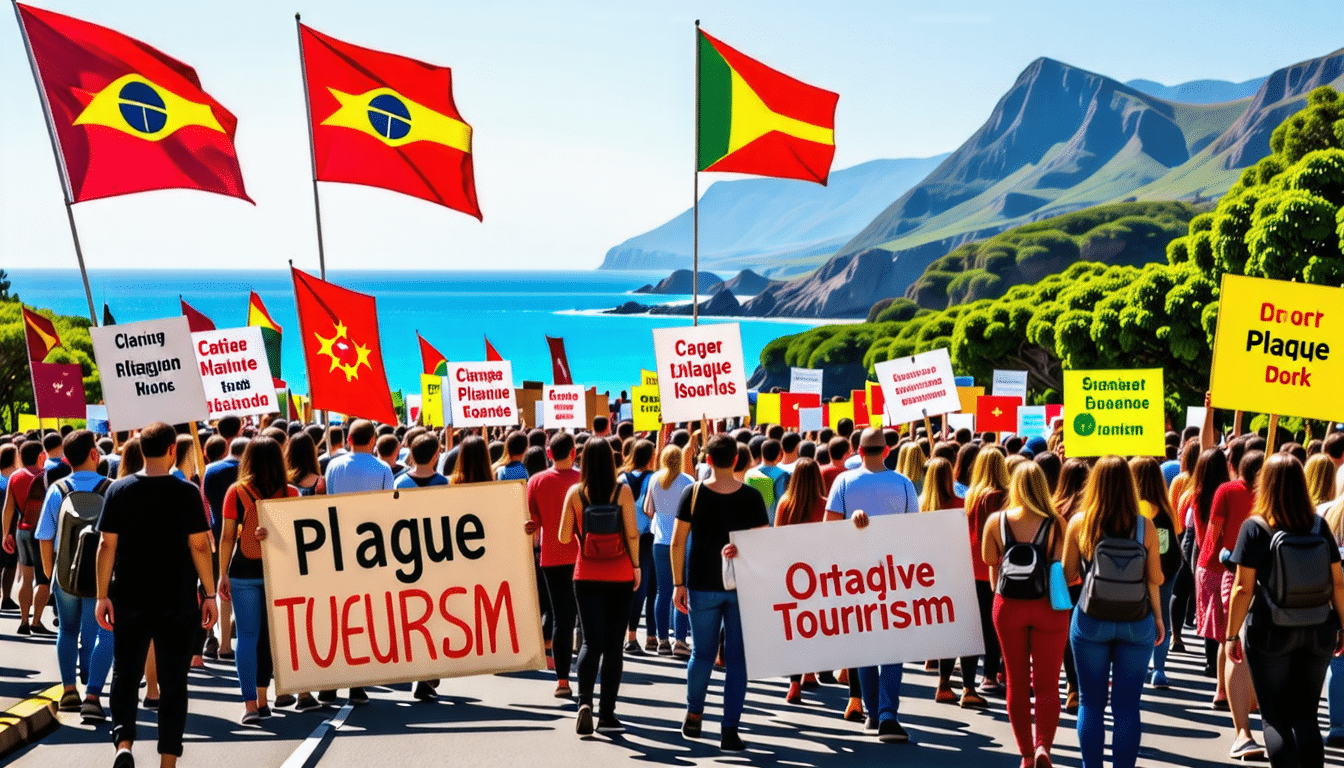|
IN BRIEF
|
The Canary Islands, an archipelago cherished for its enchanting landscapes and pleasant climate, are facing an alarming phenomenon: over-tourism. Thousands of citizens have recently mobilized to denounce the negative impacts of this excessive influx of visitors, engaging in protests across the islands. These mobilizations aim to raise awareness among authorities and the public regarding the issues caused by mass tourism and to demand sustainable solutions to preserve the environment and the quality of life of residents.
A call for collective action
Last Sunday, thousands of people marched under the banner “Canarias tiene un límite“, meaning that the Canaries have a limit. These mass movements, organized in several cities, illustrate the urgent need for collective awareness regarding the consequences of mass tourism, which authorities struggle to control. The protesters, coming from various strata of Canary society, express deep discontent with the current situation and demand concrete measures to be taken.
The consequences of over-tourism on civic life
Residents of the Canary Islands are increasingly concerned about the impact of mass tourism on their daily lives. They emphasize that the constant influx of tourists not only threatens their way of life but also the integrity of their community. Testimonies reveal worrying situations, where some inhabitants, facing soaring property prices, are forced to live in precarious conditions, even to the extent of sleeping in cars or caves.
A resident expresses her distress: “It is not normal that we, the Canarians, have to leave our land to live comfortably.” Such a statement highlights the ethical and economic dilemma that the population faces, as more and more homes are being converted into tourist rentals at the expense of primary residences. Another citizen laments: “They ignore us, as if we do not exist“, emphasizing the feeling of being left behind that many residents experience.
A movement gaining momentum
This recent protest is not an isolated event. In fact, it represents the second major mobilization of the year, following the one on April 20. The gatherings this weekend took place at strategic points in the tourist sector, such as Tenerife and Gran Canaria, particularly in Playa de las Américas and Maspalomas. With approximately 6,500 people present in Playa de las Américas, it is clear that the citizens’ anger continues to grow.
Impactful slogans such as “The Canaries are not for sale” and “Respect the place where I live” resonate throughout the cities, echoing the locals’ concerns regarding the growing commercialization of their territory. In 2023, the archipelago attracted 14.1 million visitors, raising legitimate questions about the sustainability of this tourism model.
Responding to the need for tourist quotas
The protesters demand tourist quotas, a measure often discussed in debates around over-tourism but little implemented so far. They call for a radical change in how visitors are welcomed, emphasizing the principles of sustainable tourism that respect both the environment and the local culture. The idea is not to completely restrict access to the islands, but rather to manage this influx more responsibly, for the well-being of residents and the preservation of nature.
This dynamic of citizen mobilization raises deep reflections on the future of the #Canary Islands and the development model to adopt. Civil society, now engaged in this fight, is making its voice heard and demanding an essential change for a harmonious future, where respect for the environment and the quality of life of residents take precedence over mere economic profitability. The mobilizations in the Canaries thus fit into a global trend of raising awareness regarding the challenges posed by climate change and its impacts on tourism.










